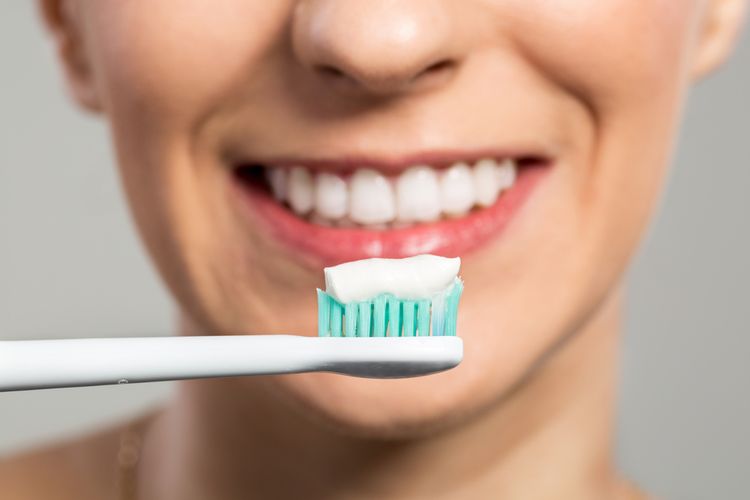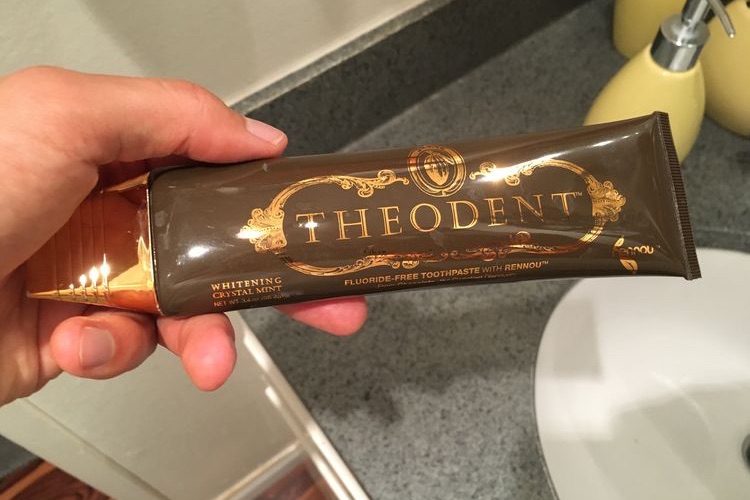Do You or Don’t You Want Fluoride in Your Toothpaste?

Fluoride is a mineral found throughout nature, including in most water, although levels vary widely. Fluoride is known to help prevent tooth decay and cavities, which is why it gets added to toothpaste and municipal drinking water supplies. But the question is this: Does fluoride do more harm than good?
That’s an interesting question that can result in heated debates. Some people think it should be avoided like the plague. Others think it’s not that big a deal. After reading the information presented below, it’ll be up to you to decide where you stand.
Is Fluoride Safe?
Fluoride is a little tricky – it has a “sweet spot” in terms of dosage. Too much can cause serious problems, and too little can leave your teeth at greater risk for unwanted decay and cavities.
The people who are die-hard opponents of fluoride say it has negative effects on two major parts of your body: your bones and your thyroid. They say it causes brittle bones, low bone density, and higher bone fracture rates. Even more importantly, anti-fluoriders have latched onto the fact that fluoride displaces iodine in the body, and iodine is the key to making sure your thyroid gland is doing its job.
The human body can’t make its own iodine, so we have to get it through our diet, but it can be hard to get that way. When iodine deficiency affects the thyroid, it can result in hypothyroidism.
Hypothyroidism is linked to all sorts of problems in modern society, including obesity and being overweight, because it’s a properly functioning thyroid that keeps your metabolism fired up. A depressed metabolism causes low energy levels, diminished sex drive, lower than normal body temperatures, and a greater risk of pretty much every kind of cancer you can think of, because cancer cells don’t like a well-fired metabolism.
The solution to iodine deficiency was the introduction of iodized salt many decades ago. Thanks to that, the occurrence of goiters (enlarged thyroid glands from iodine deficiency) is largely a thing of the past in developed countries. But the question fluoride opponents pose is this: Is the fluoride we take in causing subclinical hypothyroidism that drives the health problems mentioned above? They think so, but what does the scientific community have to say about it?
It’s interesting to note that the EPA commissioned a big study about fluoride as an additive to municipal water supplies. Based on the findings, it has revised its guidelines on the topic. It used to say that the maximum dose could be in the range of 0.7-1.2mg/L. Its new guideline is a simpler max dose of .7mg/L.
As a result, many areas have seen a reduction in the amount of fluoride they’re getting from their water. Studies show that if fluoride levels approach and exceed 1.2mg/L, the incidence of cavities actually begins to increase— a classic case of more is not better.
And on the other end of the spectrum, as the level of fluoride in your water falls below 0.7mg/L, once again cavities increase. That 0.7 level is the sweet spot of optimal cavity prevention from fluoridated water.
But here’s the thing— the fluoride you’re getting from tap water (assuming you don’t have well water) isn’t doing the bulk of the work when it comes to preventing tooth decay. It’s the topical application of fluoride that really works— the fluoride toothpaste you use daily. How much fluoride you’re ingesting from your toothpaste depends on how much you use, but as long as you’re careful not to swallow any, you’re probably not getting “too much” fluoride from it.
Opponents seem to fear any amount of fluoride, but the science simply doesn’t present compelling evidence to buy into that fear. Yes, too much fluoride can have a negative impact on your bones, but it takes a lot to make that happen. Your calcium and vitamin D intake is more important. Keep those normal and fluoride won’t pose any problem at all to bone health except in ridiculously high amounts (which would rarely occur in real life anyway).
A similar situation applies to fluoride and your thyroid. If you’re getting enough iodine, then you can take in much more fluoride without any risk of hypothyroidism. In rats with sufficient iodine, no hypothyroidism occurred with fluoride levels up to 10mg/L, and once again, this is a level you’d probably never hit in real life.
It can happen, though. People who work in aluminum plants are exposed to high levels of fluoride and end up taking in, on average, 10mg/L per day. After 10 years of that kind of exposure, 76% had hypothyroidism. Since tap water may have as much as 1mg/L, you’d have to drink 10 liters a day to mimic that kind of exposure.

Is Fluoride Worth Avoiding?
If you’re working on a list of the most important health practices to adopt in life, fluoride avoidance wouldn’t crack the top of the list. There are much bigger high-impact issues, such as:
- Eliminating highly processed foods, sugar, and grains from your diet.
- Adopting an optimal exercise regimen.
- Avoiding stress and getting enough sleep.
- Getting enough iodine, calcium, and vitamin D.
Those are all much more impactful on your life than worrying about fluoride. In fact, if you get the above right, you needn’t worry about fluoride. You’d have to get an awful lot of it to outdo the goodness of the above practices.
If you’ve read all this but still have your doubts about fluoride, then by all means, explore some alternatives. After all, it’s not like fluoride is the only way to protect your teeth.
How to Reverse Cavities Naturally
Most people just accept that once they’ve got a cavity, there’s no choice except to have it drilled and filled. But what if that’s not really true? What if, in fact, cavities could be reversed simply through diet? A study published in the British Medical Journal found it can work.
The study followed 62 children with cavities, and modified their diets. Group 1 had a standard diet with added oatmeal (a grain rich in cavity-causing phytic acid), group 2 had a standard diet with vitamin D supplementation, and group 3 had a grain-free diet with vitamin D supplementation.
As for the results, group 1 saw increased cavities, and group 2 saw fewer cavities, but group 3 saw nearly all cavities healed! Why is that? It’s because the diet group 3 was on addressed all four of the primary causes of tooth decay:
- Lack of minerals (calcium, magnesium, and phosphorus)
- Lack of fat-soluble vitamins (A, E, K, and especially D)
- Too much phytic acids (grains)
- Too much consumption of processed sugar
Processed sugar is the worst of them all, by far. It literally feeds the bacteria that wreak havoc on oral health and contributes directly to tooth decay because of its acidity. Use raw honey instead, but even that should be used sparingly.
Phytic acid is found in grains, nuts, seeds, and beans, and it blocks the minerals listed above that keep teeth healthy and even leaches them out of your body. The phytic acid in those foods can be greatly reduced or eliminated by allowing them to sprout before use, or by fermenting them. Keep your fat-soluble vitamin intake up by consuming raw dairy products like organic grass-fed butter, goat milk kefir, raw cheeses, and so on.
Bone broth, fish, and eggs from pasture-raised chickens also have lots of the good stuff you want. Another practice that works wonders on your oral health, including your teeth, is coconut oil pulling, which you can read about in our previous article, Oil Pulling Explained and Why You’d Benefit From it.
And when it comes to toothpaste, there are non-fluoride options that can be very effective, especially as re-mineralizing options, even though they get expensive. Or what about a chocolate-based toothpaste more effective than fluoride? Is there such a thing? You bet there is!

A Chocolate-Based Toothpaste That Works Better Than Fluoride?
There’s a toothpaste called Theodent, and it’s made from a naturally occurring cacao extract called Rennou. It really does work better than fluoride at re-mineralizing and repairing teeth. People who brushed twice daily with Theodent saw significant improvement in just seven days. Specifically, the dental tubules in their tooth dentin, which were breaking down, were re-mineralized and repaired. That’s impressive— way better than the fluoride toothpastes that were used in the comparison study!
Summary
If you’re eating the right diet and taking a few key supplements, getting enough exercise and adequate rest, then the amount of fluoride you’re getting from your fluoridated tap water and toothpaste might not pose a significant enough health threat for you to eliminate it entirely. But if you’re not convinced, it’s relatively easy to give up fluoride toothpaste for other practices that are just as, if not more, effective in achieving optimal oral health. Eliminating fluoride intake from your tap water, however, requires a very expensive reverse osmosis filter. And while that would certainly make a nice addition to your home, there are many things to spend your money on that’ll make a greater impact on your health.
